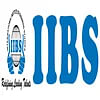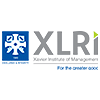
Table of Contents
- XGMT Exam Syllabus Highlights
- How to Download XGMT Syllabus PDF?
- XGMT Quant Syllabus
- X GMT Verbal Ability and Logical Reasoning Syllabus
- X GMT Data Interpretation (DI) Syllabus
- X GMT Emotional Quotient (EQ) and General Awareness Syllabus
- X-GMT Syllabus Important Topics
- X GMT Syllabus Points to Remember
The X GMT Syllabus 2026 outlines the essential topics you need to succeed in this entrance exam for the MBA course. It includes sections on Quantitative Aptitude, Verbal Ability, Logical Reasoning, Data Interpretation, and General Awareness. Similar to the CAT, XAT, and MAT, these areas assess your mathematical skills, language proficiency, critical thinking, and awareness of current events.
Quantitative Aptitude and Logical Reasoning focus on problem-solving and analytical skills, while Verbal Ability emphasises language understanding. By preparing with the X GMT 2026 Syllabus, you can strengthen your foundation for various MBA exams, enhancing your overall exam readiness.
XGMT Exam Syllabus Highlights
The X GMT Exam Date 2026 has not been announced it, however, it will be held in the third or fourth week of Jan 2026. You are advised to have a detailed understanding of every factor of the examination. The details of the same are listed below for a better reference.
|
Highlight |
Description |
|
Mode |
Online |
|
Number of Sections |
4 |
|
Number of Questions |
100-130 (Varies Each Year) |
|
Type of Questions |
Multiple Choice Questions |
|
Total Marks |
100 to 125 (Variable) |
|
Exam Duration |
120 minutes (Sectional time limit is applicable) |
|
Negative Marking |
- ⅓ marks will be deducted for wrong answers |
|
Medium of Examination |
English |
|
Topics |
1. Quantitative Aptitude: This section tests numerical ability and mathematical problem-solving skills, including topics such as percentages, ratios, algebra, geometry, and time-speed-distance calculations. 2. Data Interpretation and Logical Reasoning: This section includes interpreting data from tables, charts, and graphs, as well as logical reasoning through topics like series, coding-decoding, cause-effect, and direction sense. 3. Verbal Ability: Focuses on English language skills, covering areas like vocabulary, reading comprehension, grammar, sentence correction, and critical reasoning. 4. General Awareness and Emotional Quotient: Includes current affairs, general knowledge, and assessing candidates' emotional intelligence, covering areas like situational responses, managing emotions, and cultural sensitivity. |
How to Download XGMT Syllabus PDF?
The X GMT syllabus pdf 2026 can be downloaded from the examination's official website. Here are the steps to download the X GMT exam syllabus 2026.
- Step 1: Go to the official XGMT website(xim.edu.in/x-gmt).
- Step 2: Navigate to the "Syllabus" or "Examination" section, typically found in the main menu.
- Step 3: Look for the "X GMT Guidelines" link or a similar heading in the section.
- Step 4: Click on the syllabus link to open the PDF file.
- Step 5: Download or save the PDF to your device for easy access.
- Step 6: You can download the XGMT syllabus by clicking the link below.
XGMT Quant Syllabus
The Quantitative Aptitude section in X GMT 2026 is designed to assess your mathematical skills across a range of essential topics. Here’s a detailed overview of topics covered in this section:
|
Topics |
Description |
|
Algebra |
Basic concepts like equations, inequalities, and functions form the core, with a focus on applications in quadratic equations and polynomials. |
|
Number System |
Covers properties of numbers, including divisibility rules, prime numbers, HCF and LCM, and fractions and decimals. |
|
Arithmetic |
Topics include ratios, percentages, averages, profit and loss, time and work, and mixtures, providing a basis for solving common real-world problems. |
|
Geometry |
This includes properties of shapes such as triangles, circles, quadrilaterals, and the use of coordinates, with problems involving area, perimeter, and volume. |
|
Time, Speed, and Distance |
Involves calculating speed and distance, and handling concepts like relative speed, boats, and streams. |
|
Logarithms and Surds |
Covers fundamental logarithmic identities and basic calculations involving surds. |
|
Permutation and Combination |
Basic principles of counting, with problems on arrangements, selections, and introductory probability concepts. |
|
Data Interpretation |
Focuses on analysing data presented in charts, tables, and graphs, and includes data-sufficiency questions. |
Recommend Books for X GMT Quantitative Aptitude Section
However there are many good books available in the market to cover quantitative aptitude for MBA entrance exams, here are some books for comprehensive coverage across all topics:
- "Quantitative Aptitude for Competitive Examinations" by R.S. Aggarwal
- "How to Prepare for Quantitative Aptitude for the CAT" by Arun Sharma
- "Fast Track Objective Arithmetic" by Rajesh Verma
X GMT Verbal Ability and Logical Reasoning Syllabus
The Verbal Ability and Logical Reasoning section of X GMT syllabus 2026 is designed to test your language and analytical skills. Here’s a breakdown of the syllabus:
|
Topic |
Description |
|
Verbal Ability |
|
|
Vocabulary |
This includes questions on synonyms, antonyms, word usage, analogies, and contextual vocabulary. |
|
Grammar and Sentence Correction |
Candidates are tested on grammar rules, sentence structure, and the ability to identify and correct errors in sentences. Topics often cover parts of speech, subject-verb agreement, and proper sentence formation. |
|
Reading Comprehension |
Comprehension passages test reading skills, focusing on understanding, interpreting, and analysing text. Questions often include identifying main ideas, supporting details, inferences, and tone. |
|
Para-Jumbles and Sentence Rearrangement |
These questions assess a candidate's ability to logically arrange sentences within a passage to form a coherent structure. |
|
Logical Reasoning |
|
|
Analytical Reasoning |
Topics include patterns, series, cause and effect, statements and assumptions, conclusions, and logical sequences. |
|
Blood Relations and Family Trees |
Questions are based on family relationships, requiring candidates to determine how individuals are related in a family structure. |
|
Syllogisms and Logical Deductions |
Tests reasoning abilities through statements and conclusions, requiring candidates to infer relationships between different statements logically. |
|
Coding-Decoding |
This includes questions where words or numbers are coded, and candidates need to decode them based on a certain rule. |
|
Puzzles and Arrangements |
Questions may involve seating arrangements, ordering of events, or arranging items according to given conditions. |
|
Clocks and Calendars |
Candidates solve problems related to time, dates, and the ability to calculate specific days or events based on given data. |
Recommend Books for X GMT Verbal Ability and Logical Reasoning 2026
There are many books available in the market for a comprehensive study, and some of them are.
- "A Modern Approach to Verbal & Non-Verbal Reasoning" by R.S. Aggarwal
- "How to Prepare for Verbal Ability and Reading Comprehension for the CAT" by Arun Sharma and Meenakshi Upadhyay
- "Logical Reasoning and Data Interpretation for the CAT" by Nishit Sinha
X GMT Data Interpretation (DI) Syllabus
The Data Interpretation (DI) section of XGMT 2026 assesses your ability to interpret, analyse, and present data in various forms. Here’s an overview of the syllabus for DI:
|
Topics |
Description |
|
Tables |
You may be asked to analyse data presented in tabular form. This involves performing calculations such as averages, percentages, ratios, and other operations based on the given data. |
|
Bar Graphs |
This topic involves interpreting data presented in the form of bar graphs. You need to draw inferences, compare different categories, and solve problems based on the visual representation of data. |
|
Pie Charts |
Questions related to pie charts test the ability to analyse data distribution across various segments. You may need to calculate percentage shares, and proportions, and make comparisons. |
|
Line Graphs |
Interpreting data from line graphs is essential. You are expected to extract information regarding trends, growth patterns, and changes over time. |
|
Data Sufficiency |
In this type of question, candidates are given a set of data and must determine if the provided information is enough to answer a specific question. It tests logical reasoning and the ability to discern relevant information from irrelevant data. |
|
Caselets |
These are small sets of data that require detailed analysis. You will need to read through a set of information and answer questions that involve multiple steps of interpretation. |
|
Mixed Graphs |
This category involves interpreting data from multiple types of charts or graphs, such as a combination of bar graphs, pie charts, or line graphs. It tests the ability to compare and analyse diverse data formats. |
|
Venn Diagrams and Data Comparison |
These questions involve interpreting data presented through Venn diagrams or comparing sets of data to draw conclusions. |
Recommend Books for X GMT Data Interpretation (DI) 2026
There are many books available in the market for a comprehensive study of X GMT Data Interpretation (DI) Syllabus 2026, some of them are.
- "How to Prepare for Data Interpretation for CAT" by Arun Sharma
- "Data Interpretation for the CAT" by Nishit Sinha
- "Quantitative Aptitude for Competitive Examinations" by R.S. Aggarwal
X GMT Emotional Quotient (EQ) and General Awareness Syllabus
The Emotional Quotient (EQ) and general awareness section assesses your emotional intelligence, which involves your ability to recognize, understand, manage, and influence emotions in yourselves and others. Here’s a breakdown of the key areas in this section.
|
Topic |
Description |
|
Emotional Quotient |
|
|
Self-Awareness |
This includes recognizing one’s emotions and their impact on performance. You are tested on your ability to reflect on your emotional states and how these affect your thinking, behaviour, and decision-making. |
|
Self-Regulation |
This section focuses on managing emotions healthily and constructively, including maintaining control over impulses, managing stress, and being adaptable in different situations. |
|
Motivation |
Emotional intelligence is linked to intrinsic motivation, which involves a passion to work for reasons beyond external rewards. You are tested on goal-setting, perseverance, and staying driven even when facing challenges. |
|
Empathy |
You must demonstrate an understanding of others' emotions, which involves being able to identify and respond to emotional cues. Empathy also includes listening skills, understanding perspectives, and showing compassion. |
|
Social Skills |
This involves interpersonal skills such as communication, conflict resolution, and collaboration. You are evaluated on your ability to navigate social complexities, maintain relationships, and work in team environments. |
|
XGMT GK Syllabus |
|
|
Current Affairs |
This includes national and international news, recent developments in politics, economics, science, and technology, and notable events in sports, entertainment, and culture. |
|
Business and Economy |
Questions may cover key economic indicators, policies, trends in industries, banking, financial markets, and global economic issues. |
|
Science and Technology |
Topics include recent advancements in scientific research, technological innovations, and space exploration. |
|
Indian History and Geography |
Basic knowledge of Indian history, cultural heritage, geographical features, and important landmarks. |
|
Politics and Governance |
Understanding of political structures, systems of government, major political parties, elections, and governance in India and globally. |
|
International Relations |
Focus on the relationship between nations, important treaties, global organizations like the UN, and NATO, and the role of countries in international affairs. |
|
Sports |
Key sporting events, records, tournaments, and the achievements of famous athletes. |
|
Art and Culture |
Awareness of famous Indian and international artists, art forms, historical monuments, and cultural practices. |
Recommend Books for X GMT Emotional Quotient (EQ) and General Awareness 2026
For EQ and General Awareness, these books and resources may help in the comprehensive coverage of the syllabus:
- "Emotional Intelligence 2.0" by Travis Bradberry and Jean Greaves
- "General Knowledge 2026" by Manohar Pandey (Arihant)
- "Current Affairs Yearly" by Pratiyogita Darpan
X-GMT Syllabus Important Topics
However, every topic must be covered by you to score decent in the final examination. Here is the list of some important topics based on previous year trends having a decent weightage in the examination.
|
Section |
Important Topics |
|
Quantitative Aptitude |
|
|
Verbal Ability |
|
|
Data Interpretation |
|
|
Emotional Quotient and General Awareness |
|
X GMT Syllabus Points to Remember
Here are some key points to remember while preparing for the X GMT Exam 2026.
- Exam Structure: XGMT 2026 consists of multiple sections, namely Quantitative Aptitude, Data Interpretation, Verbal Ability, Logical Reasoning, and General Awareness.
- General Awareness Focus: A significant portion of the exam is dedicated to testing knowledge of current affairs, especially related to business and economics.
- Topic Weightage: The syllabus includes a mix of topics with varying levels of importance. Candidates must focus on Quantitative Aptitude and Logical Reasoning, as these areas are often weighted more heavily.
- Time Allocation: The exam assesses various skill sets under time constraints, so time management is crucial. Each section is designed to evaluate specific areas of aptitude.

























